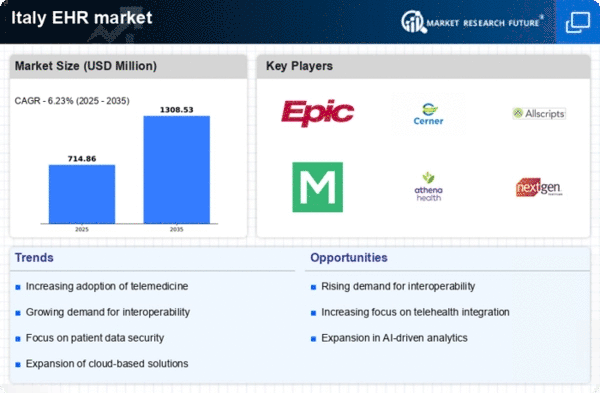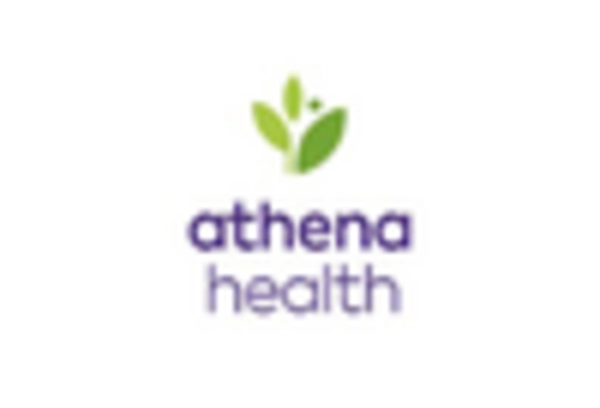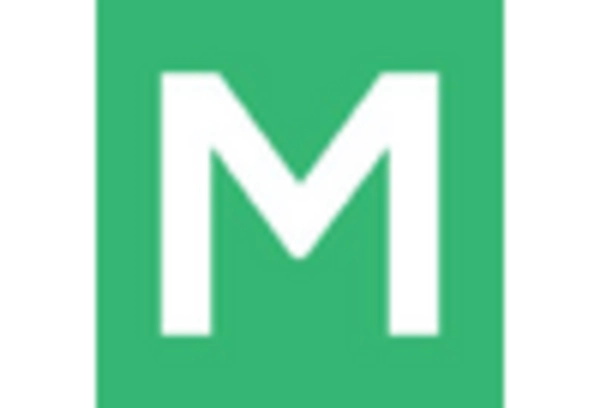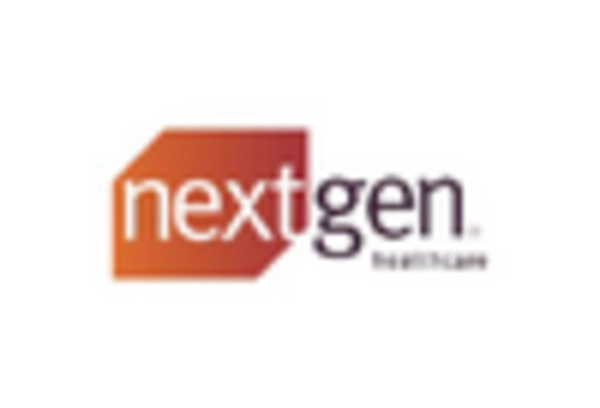Rising Demand for Telemedicine
The ehr emr market is witnessing a surge in demand for telemedicine services across Italy. As healthcare providers increasingly adopt remote consultation methods, the need for integrated electronic health records becomes paramount. Telemedicine requires seamless access to patient data, which can be efficiently managed through ehr emr systems. This trend is reflected in a reported increase of 25% in telehealth consultations over the past year, indicating a shift in patient preferences towards remote healthcare solutions. Consequently, healthcare organizations are investing in ehr emr technologies that support telemedicine functionalities, thereby enhancing patient care and operational efficiency. The growing acceptance of telemedicine is likely to drive further investments in the ehr emr market, as providers seek to optimize their digital health strategies.
Increased Focus on Data Security
Data security concerns are becoming increasingly prominent within the ehr emr market in Italy. With the rise of cyber threats, healthcare organizations are prioritizing the protection of sensitive patient information. The implementation of stringent data security measures is essential for maintaining patient trust and ensuring compliance with regulations such as the General Data Protection Regulation (GDPR). As a result, healthcare providers are investing in advanced ehr emr systems that offer robust security features, including encryption and access controls. This heightened focus on data security is expected to contribute to a growth rate of around 12% in the ehr emr market over the next few years. By addressing these security challenges, organizations can enhance their digital health capabilities while safeguarding patient data.
Regulatory Support for Digital Health
The ehr emr market in Italy is experiencing a boost due to robust regulatory support from the government. Initiatives aimed at enhancing digital health infrastructure are being implemented, which encourages healthcare providers to adopt electronic health records. The Italian Ministry of Health has introduced policies that promote the integration of digital solutions in healthcare settings. This regulatory framework not only facilitates the transition to electronic systems but also ensures compliance with data protection laws. As a result, healthcare organizations are more inclined to invest in ehr emr solutions, leading to a projected growth rate of approximately 10% annually in the sector. Such supportive measures are crucial for the advancement of the ehr emr market, as they provide a clear pathway for implementation and innovation.
Integration of Artificial Intelligence
The integration of artificial intelligence (AI) technologies is emerging as a transformative driver in the ehr emr market. AI applications can enhance data analysis, streamline workflows, and improve clinical decision-making processes. In Italy, healthcare providers are increasingly recognizing the potential of AI to optimize patient care and operational efficiency. The market for AI in healthcare is projected to grow by 15% annually, with ehr emr systems being a key area of focus. By incorporating AI capabilities, these systems can provide predictive analytics, automate routine tasks, and facilitate personalized medicine. This trend indicates a shift towards more intelligent healthcare solutions, positioning the ehr emr market for substantial growth as organizations seek to leverage AI for improved outcomes.
Growing Emphasis on Interoperability Standards
The ehr emr market is being significantly influenced by the growing emphasis on interoperability standards among healthcare systems in Italy. As healthcare providers strive for seamless data exchange, the demand for ehr emr solutions that comply with interoperability standards is increasing. This trend is driven by the need for coordinated care and improved patient outcomes. The Italian government is actively promoting initiatives that encourage the adoption of standardized data formats, which facilitates better communication between different healthcare entities. As a result, organizations are more likely to invest in ehr emr systems that support these standards, leading to a projected growth of 8% in the market. The focus on interoperability is essential for creating a cohesive healthcare ecosystem that enhances the overall efficiency of patient care.
















